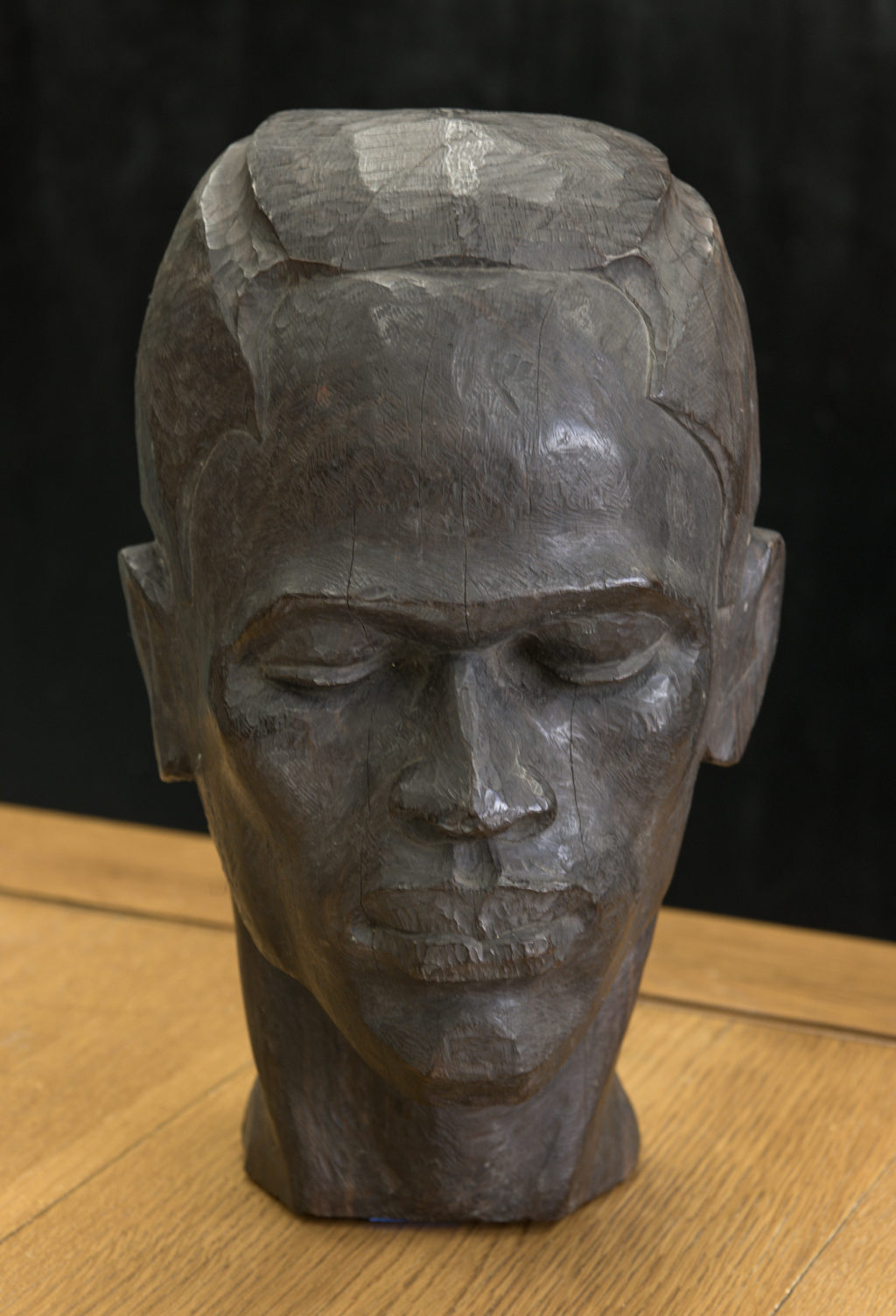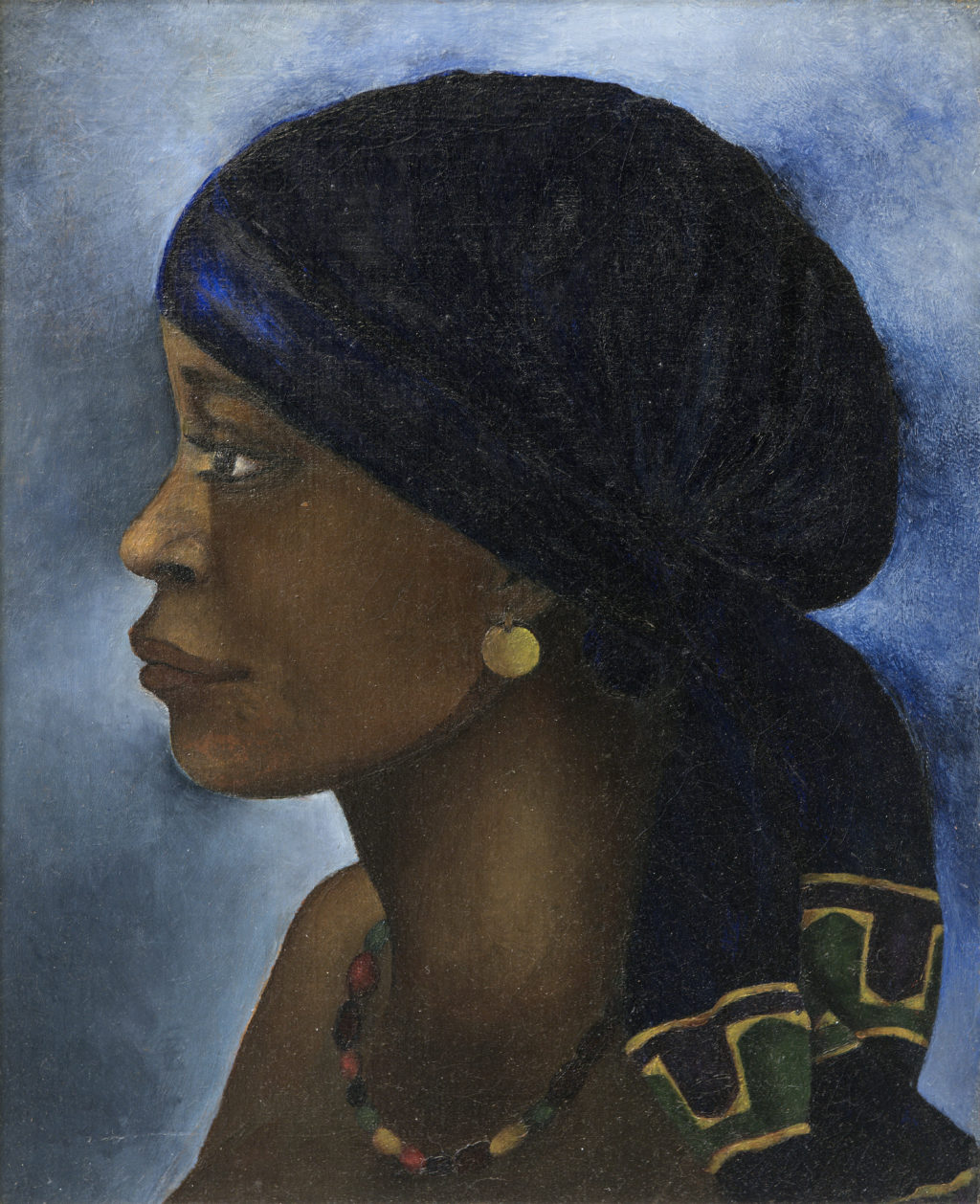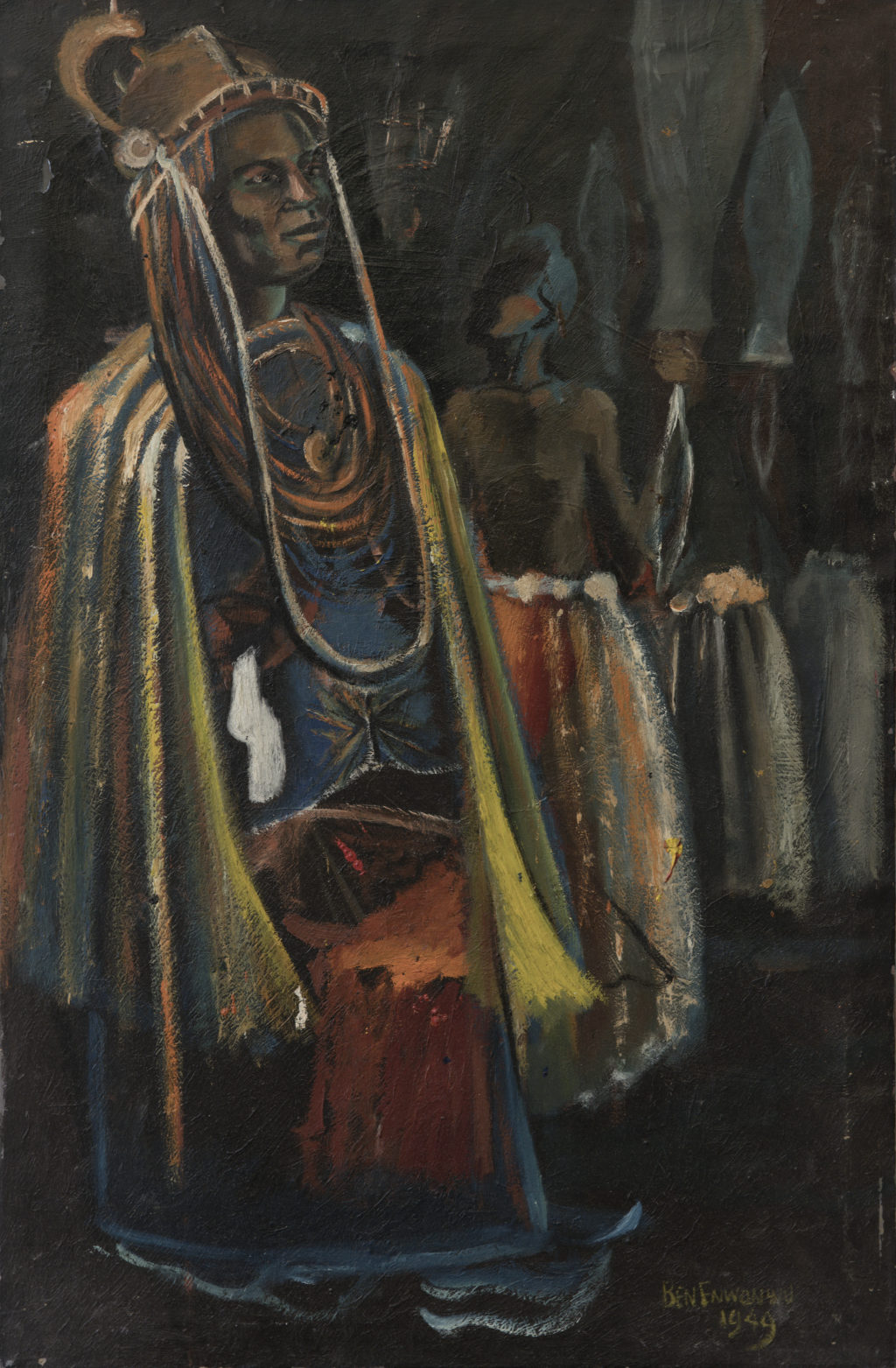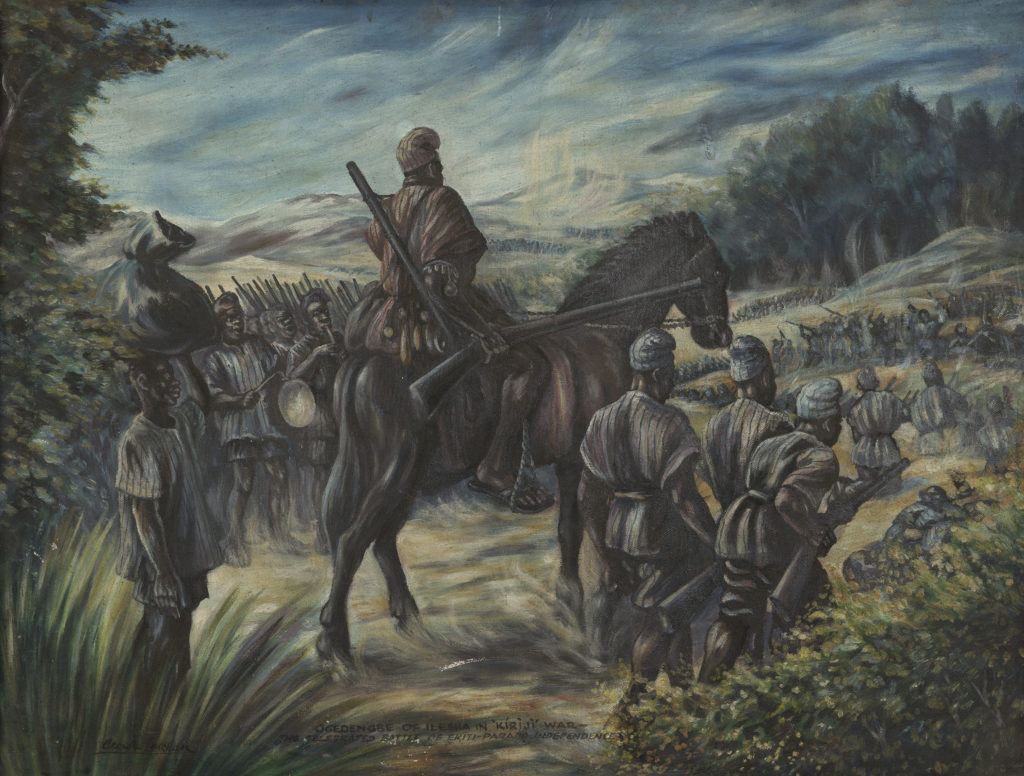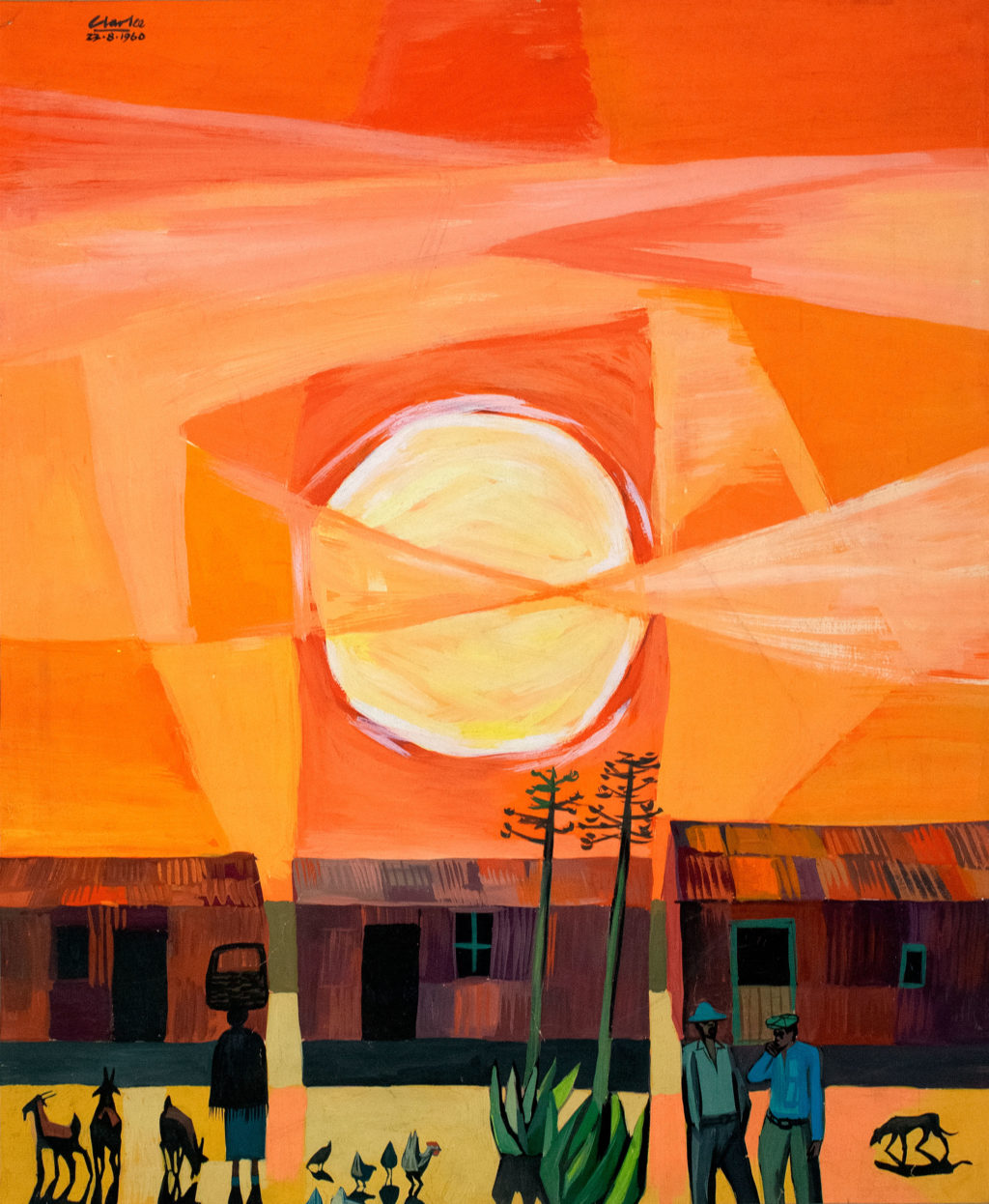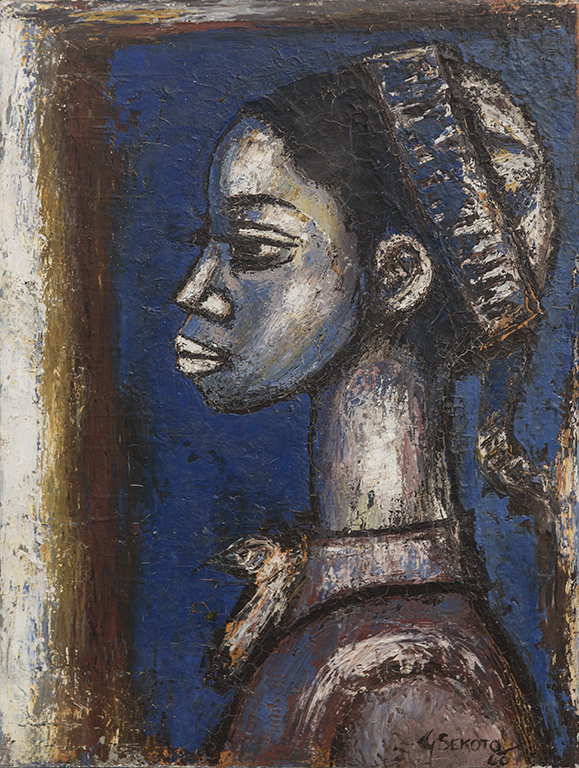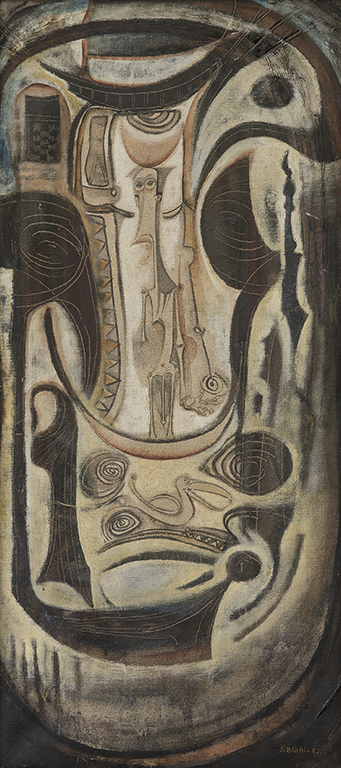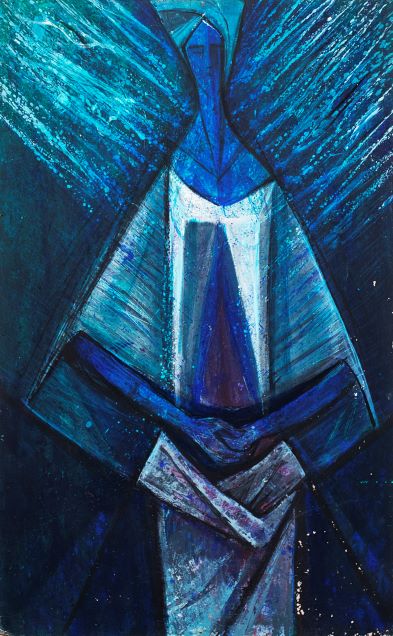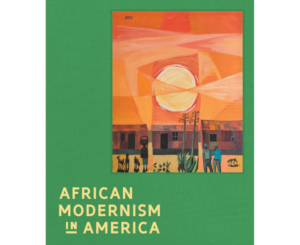African Modernism in America is the first major traveling exhibition to examine the complex connections between modern African artists and American patrons, artists, and cultural organizations amid the interlocking histories of civil rights, decolonization, and the Cold War. During these years, institutions such as the Harmon Foundation, the Museum of Modern Art, New York, and Historically Black Colleges and Universities (HBCUs) collected and exhibited works by many of the most important African artists of the mid-twentieth century, including Ben Enwonwu (Nigeria), Gerard Sekoto (South Africa), Ibrahim El-Salahi (Sudan), and Skunder Boghossian (Ethiopia). The inventive and irrefutably contemporary nature of these artists’ paintings, sculptures, and works on paper defied typical Western narratives about African art being isolated to a “primitive past,” and their presentation in the United States rooted their vital work firmly in the present for American audiences. This exhibition, drawn primarily from Fisk University’s remarkable collection of gifts from the Harmon Foundation, features more than seventy artworks by fifty artists that exemplify the relationships between the new art that emerged in Africa during the 1950s and 1960s and American art and cultural politics. The show reveals a transcontinental network of artists, curators, and scholars that challenged assumptions about African art in the United States, and thereby encouraged American engagement with African artists as contemporaries.
In 1961, the Harmon Foundation, a leading American organization devoted to the support and promotion of African and African American artists and to forging links between transatlantic artists and audiences, organized its landmark exhibition Art from Africa of Our Time. That year, the Museum of Modern Art also exhibited its first acquisition of contemporary African art, Men Taking Banana Beer to Bride by Night (1956) by Sam Ntiro (Tanzania). The simultaneity of the Harmon Foundation show and the MoMA purchase was crucially important, drawing attention to African artists’ modernity in a moment of shifting relationships between the United States and African nations. By 1961, many African nations had gained independence from colonial rule. During the same year, the Freedom Riders protested segregation in the American South; Congolese independence leader Patrice Lumumba was killed in a CIA-supported assassination plot; and eminent Pan-Africanist W.E.B. DuBois emigrated to Ghana. Within the changing social and political contexts of colonialism, decolonization, and independence in Africa, artists developed new visual languages, and exhibitions such as Art from Africa of Our Time enabled American audiences to recognize their shared aesthetic and political concerns.
African Modernism in America will be presented in four sections. The first, “Art from Africa of Our Time: The Modern African Artist” foregrounds the places and people who supported the display and promotion of modern African artists in the United States. The second section of the exhibition highlights the continent-wide networks of artists, galleries, literary journals, and art education programs instrumental in the development of these new, forward-thinking spaces for the display and discussion of postcolonial modern art. The third section of the exhibition, “African Modernists in America,” highlights the establishment of meaningful connections between African and African American artists in the United States. The exhibition concludes with “The Politics of Selection,” a new commission of the same name by Lagos-based sculptor Ndidi Dike that interrogates the cold-war era collecting histories presented in the exhibition, including those of the Harmon Foundation. Dike will conduct research in the Harmon Foundation and Fisk University archives to produce an immersive multimedia installation that examines the multiplicity of viewpoints, biases, prejudices, allegiances, and omissions found in the archive.
ITINERARY
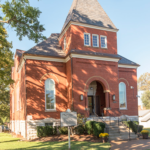
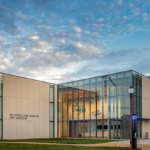
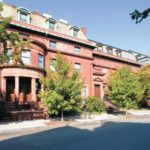
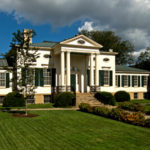
NOTABLE AWARDS
Winner of the College Art Association’s 2024 Alfred H. Barr Jr. Award for Smaller Museum, Libraries, Collections, and Exhibitions;
Arts Council of the African Studies Association’s 2024 Arnold Rubin Outstanding Publication Award;
Association of Art Museum Curators’s 2023 Award for Excellence.
CURATORS
Perrin M. Lathrop received her PhD from the Department of Art and Archaeology and completed a graduate certificate in African American Studies at Princeton University in 2021. She has held curatorial positions at Fisk University Galleries, the Princeton University Art Museum and the Newark Museum, where she curated The Art of Translation: The Simon Ottenberg Gift of Modern and Contemporary Nigerian Art in 2013.
Nikoo Paydar, PhD, is the former Associate Curator, Fisk University Galleries, and was Co-Founding Executive Director of Iranian Alliances Across Borders. At Fisk, she organized the exhibitions Pataj/Partage: Shared Visions Between Fisk University and Haiti (2019) and Becoming North Nashville (2019). Previously, she curated TRANSFORM/NATION: Contemporary Art of Iran and Its Diaspora (2007), sister exhibitions presented in Washington, DC, and Tehran.
Jamaal Sheats, MFA, is Director and Curator at the Fisk University Galleries, Assistant Professor of Art at Fisk University, and a practicing artist. He has organized many exhibitions at Fisk, including Origins of Influence: The Alfred Stieglitz Collection of Modern Art (2016), World War I and the Great Migration (2017), and -SCAPE African American Artists Inspired by the Built Environment (2018). Most recently he co-curated Terry Adkins: Our Sons and Daughters Ever on the Altar (2020) with Katie Delmez.
CREDIT
This exhibition is co-organized by the American Federation of Arts and Fisk University Galleries.
Major support for the exhibition is provided by Monique Schoen Warshaw. Additional support is provided by grants from the Marlene and Spencer Hays Foundation, the Mellon Foundation and the Andy Warhol Foundation for the Visual Arts. This project is supported in part by the National Endowment for the Arts.
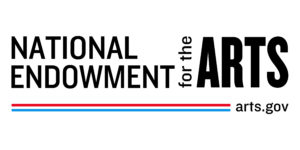
BOOKING
For booking information, contact Amy Foley at afoley@amfedarts.org.
